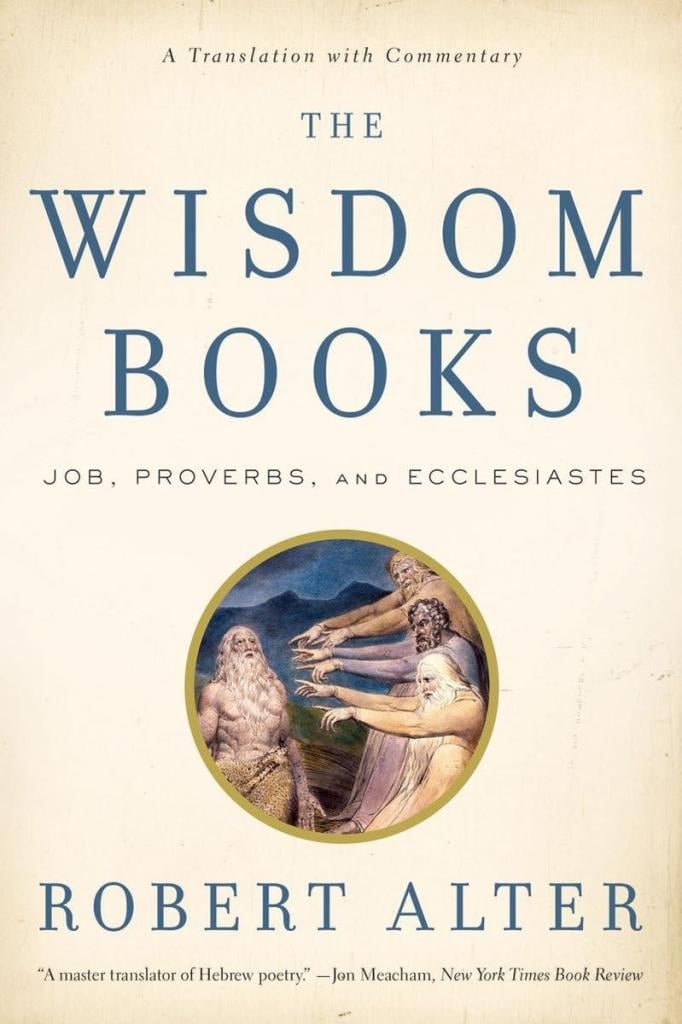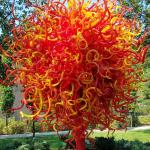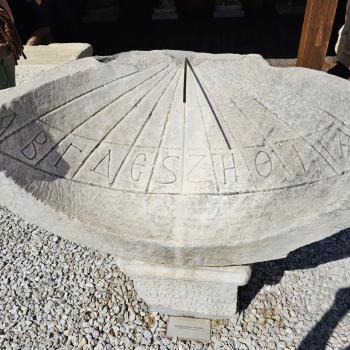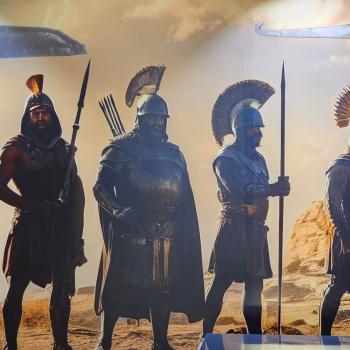The Woman Wisdom poem in Prov. 8 takes an unexpected turn at the end where we hear:
“And I was by him, an intimate,
I was his delight day after day,
playing before him at all times,
playing in the world, His earth,
And my delight [was] with humankind….
For who finds me, has found life,
and will be favored by the Lord.
And who offends me lays waste his life,
all who hate me love death.” (this is Robert Alter’s translation).
A careful study of all of Prov. 3 and 8 illuminates the Gospel of John’s portrayal of Jesus. Probably the only reason the Prologue in John1 calls Jesus the Logos and not Sophia is because Logos is a masculine noun, whereas Sophia like Hokmah is a feminine noun. We discover that the various things Woman Wisdom is said to offer in Prov. 1, 3 and 8 are the very things predicated of Jesus in the I Am sayings— he is the way, the truth, the life, before Abraham was he existed, he is the beloved Son of God, in whom God takes delight, he is the co-creator with the Father of the world, he loves humankind and takes delight in blessing them with knowledge of God, indeed saving wisdom, and so on.
Prov. 9 contains a deliberate contrast between Woman Wisdom and Lady Folly, with the chapter beginning with the words “Wisdom has built her house, she has hewn her pillars seven. She has slaughtered her meat and mixed her wine, she laid out her table” and then she has her maidens go out and invite the naive and the foolish to a feast of wisdom– which they sorely need. This should be compared to ‘Come unto me all you who labor and are heavy laden, and I will give you rest’ and to ‘I am the bread of life…’. The alternative is not some neutral existence, but rather being led down the path of lies to destruction. All of life is a choice between good and evil, all of life is a morality play. Notice that Wisdom here identifies with ‘the least of these’ the naive, the foolish, and bids them come unto Wisdom’s banquet and feast. Notice the parallels with Jesus’ parables about invitations to a great feast, and how in the end even ‘the least, the last, and the lost’ are brought to the table when the more elite refused to come. Parables are indeed a form of wisdom literature, as are proverbs, maxims, riddles, and notice that Jesus’ public speech is always in wisdom speech. Indeed, we are even told “The queen of the South will rise up at the judgment with this generation and condemn it, for she came from the ends of the earth to hear the wisdom of Solomon, and behold, something greater than Solomon is here.” (Matthew 12:42). It is not an accident that wise man sought out the Christ child, nor that Jesus’ wisdom is tested again and again during his ministry. He does not speak by quoting God like a prophet. He never uses the formula ”thus says the Lord…’. Rather he speaks on his own authority, like Wisdom in Prov. 8-9.
For more on all this see my book Jesus the Sage and the Pilgrimage of Wisdom, (Fortress Press).














